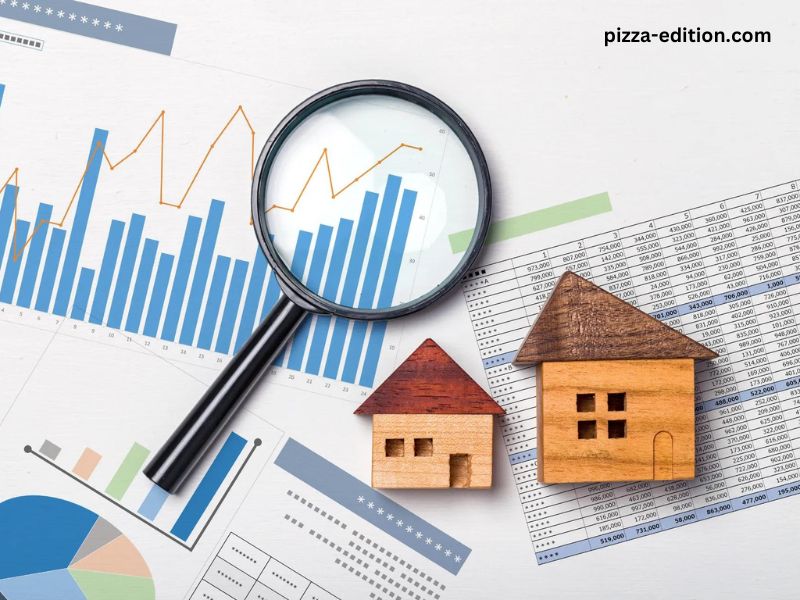Obtaining a real estate license is a significant milestone for those looking to enter the real estate industry. The journey to getting licensed involves several steps, including education, exams, and application processes. The time it takes to get a real estate license can vary depending on factors such as the state you’re in, the mode of study you choose, and how quickly you can complete the necessary requirements. This article will explore the various steps involved in obtaining a real estate license and provide insights into how long each step might take.
Understanding the Requirements for a Real Estate License
Before diving into the time frame, it’s essential to understand the basic requirements for obtaining a real estate license. Although the specific requirements vary by state, most states have similar general prerequisites. Typically, to qualify for a real estate license, you must:
- Be at least 18 or 19 years old (depending on the state).
- Have a high school diploma or equivalent.
- Complete a state-approved pre-licensing education course.
- Pass the state real estate licensing exam.
- Submit a license application and pass a background check.
- Find a sponsoring broker to work under (in most states).
Step 1: Pre-Licensing Education
The first and often most time-consuming step in obtaining a real estate license is completing the required pre-licensing education. The number of hours required for this education varies by state, with most states requiring between 60 and 180 hours of coursework. Here’s a breakdown of some state requirements:
- California: 135 hours
- Florida: 63 hours
- New York: 75 hours
- Texas: 180 hours
Time Frame for Pre-Licensing Education
The time it takes to complete the pre-licensing education depends on whether you choose to take classes full-time or part-time and whether you opt for an online or in-person format.
- Full-Time In-Person Classes: If you take a full-time, in-person class, you could complete the required hours in a few weeks. For example, a 75-hour course might take about two weeks if classes are held five days a week.
- Part-Time In-Person Classes: If you choose a part-time schedule, it could take several months to complete the required hours. For example, attending evening classes twice a week might stretch the process to three or four months.
- Online Classes: Online courses offer the most flexibility. If you can dedicate a few hours each day, you could potentially complete the required hours in a matter of weeks. However, if you’re juggling other responsibilities, it might take several months.
Step 2: Passing the Pre-Licensing Exam
Once you’ve completed the required education, the next step is to pass the state’s real estate licensing exam. This exam typically consists of two parts: a national portion that covers general real estate principles and practices, and a state-specific portion that covers the laws and regulations in your state.
Preparing for the Exam
Preparation time for the exam can vary depending on your familiarity with the material and your study habits. Some candidates may feel ready to take the exam immediately after completing their coursework, while others may need additional study time. Here are some factors to consider:
- Practice Exams: Taking practice exams can help you gauge your readiness. Some candidates spend a few days to a few weeks taking practice exams and reviewing any weak areas.
- Study Time: On average, candidates spend between 1-3 weeks studying for the exam after completing their coursework.
Scheduling the Exam
The availability of exam dates can also affect the timeline. In some states, exams are offered on a rolling basis, and you might be able to schedule your exam within a few days of completing your coursework. In other states, you may need to wait several weeks for the next available exam date.
Exam Results
In many states, you receive your exam results immediately after completing the test. However, in some cases, it may take a few days to a few weeks to receive your official results.
Step 3: Submitting Your License Application
After passing the exam, the next step is to submit your license application to the state’s real estate commission or regulatory agency. This application typically includes:
- Your exam results.
- Proof of completing the required education.
- A background check.
- Payment of licensing fees.
Time Frame for Application Processing
The time it takes to process your license application varies by state. Some states offer online applications with quick turnaround times, while others may require you to submit a paper application that takes longer to process.
- Online Applications: In states that offer online applications, your license could be processed within a few days to a few weeks.
- Paper Applications: Paper applications can take several weeks to a few months to process.
Step 4: Finding a Sponsoring Broker
In most states, you must find a sponsoring broker to activate your license. A sponsoring broker is a licensed real estate broker who will supervise your work as a new agent. Some agents find a sponsoring broker before taking the exam, while others wait until after they’ve passed.
Time Frame for Finding a Broker
The time it takes to find a sponsoring broker can vary widely depending on your network, the brokerage market in your area, and how actively you search. Some candidates may find a broker within a few days, while others may take several weeks or months to find the right fit.
Step 5: Activation of Your License
Once you’ve found a sponsoring broker and your application has been approved, your license will be activated. At this point, you’re officially a licensed real estate agent and can begin practicing.
Time Frame for License Activation
In states with online systems, your license could be activated almost immediately once all requirements are met. In other cases, it might take a few days to a few weeks for your license to be activated.
Factors That Can Affect the Timeline
While the steps outlined above provide a general overview, several factors can affect how long it takes to get your real estate license:
- State Requirements: As mentioned, the number of required pre-licensing hours varies by state, which can significantly impact the timeline.
- Mode of Study: Whether you choose full-time, part-time, online, or in-person classes will affect how quickly you can complete the required education.
- Exam Availability: The frequency and availability of licensing exams in your state can impact how quickly you can move from coursework to licensing.
- Application Processing Times: Some states have faster processing times for license applications than others.
- Background Check Delays: Background checks can sometimes cause delays, particularly if there are any issues that need to be resolved.
- Finding a Sponsoring Broker: The time it takes to find a sponsoring broker can vary and may affect how quickly you can activate your license.
Summary: How Long Does It Take to Get a Real Estate License?
In summary, the time it takes to get a real estate license can range from as little as three months to as long as six months or more, depending on various factors. Here’s a breakdown of the estimated timeline:
- Pre-Licensing Education: 2 weeks to 6 months
- Exam Preparation: 1 to 3 weeks
- Exam Scheduling and Results: 1 to 4 weeks
- Application Submission and Processing: 1 to 8 weeks
- Finding a Sponsoring Broker: A few days to several months
- License Activation: Immediate to a few weeks
Tips for Speeding Up the Process
If you’re eager to get your real estate license as quickly as possible, here are some tips to help speed up the process:
- Choose an Online Course: If you have the discipline to study independently, an online course can allow you to complete your pre-licensing education at your own pace.
- Study Efficiently: Focus on understanding key concepts and take practice exams to ensure you’re prepared for the licensing exam.
- Schedule the Exam Early: As soon as you complete your coursework, schedule your exam as early as possible to avoid long wait times.
- Prepare Your Application: Gather all necessary documents and information in advance so you can submit your application as soon as you pass the exam.
- Network Early: Start networking with brokers early in the process so you can find a sponsoring broker quickly after passing your exam.
Conclusion
Getting a real estate license is a process that requires time, effort, and dedication. While the timeline can vary, being aware of the steps involved and planning accordingly can help you navigate the process more efficiently. Whether you complete the process in a few months or take a bit longer, the end result—a rewarding career in real estate—is well worth the investment.




